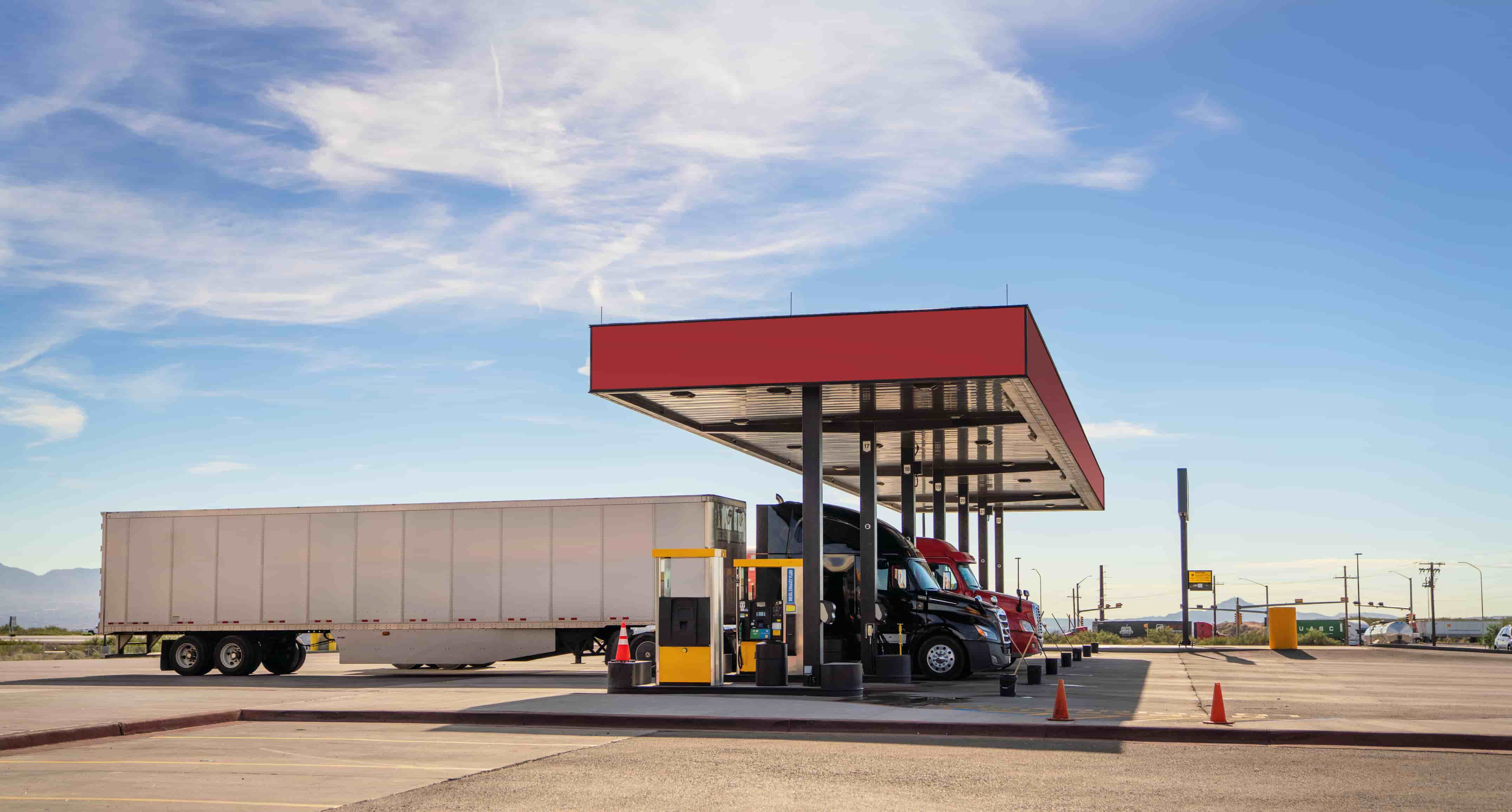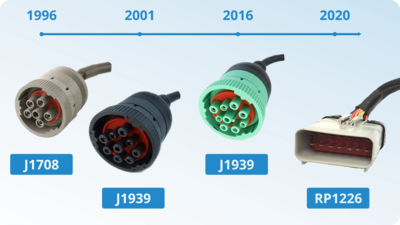
Are you a trucking company that frequently travels between multiple U.S. States and/or Canadian provinces? Keeping up with IFTA regulations can be overwhelming. That's why we're here to help with this IFTA cheatsheet!
Please Note: In this article, we will frequently use the term "state" for simplicity when discussing IFTA regulations. However, these principles can also be applied to the participating Canadian provinces as well.
What is IFTA, and Why is it Important?
IFTA is the International Fuel Tax Agreement, an agreement among the participating states and provinces in North America that governs fuel tax obligations for commercial motor vehicles. With IFTA, truckers can register in one state and have fuel taxes paid out to each state they’ve been through based on miles driven in each area.
IFTA is critical to maintaining our roads. Without it, only the states where you fueled up would benefit from the tax money from your purchase, regardless of how many states you traveled through. This could present a major issue as fuel tax is critical to maintaining the roadways across the U.S. and Canada. If there wasn't a balance and fair distribution of fuel tax, many states would suffer and in turn, many companies would as well.
That being said, IFTA can be time-consuming to track. That is why we are making it easy for you to streamline this process. Welcome to IFTA made easy!
What You Need to Get Started
To calculate your IFTA, you will need:
1. All of your fuel receipts from that report period
2. Record of miles traveled in each jurisdiction
3. The fuel tax rates applicable for that quarter from each jurisdiction
(Don't worry, we will cover each of these in more detail below)
1.Gathering Your Fuel Receipts
The simplest way to keep this organized is by making all your fuel purchases on a fleet fuel card. Not only will a fleet card save you time trying to track down paper receipts, it will also typically save you money as many fleet cards offer negotiated rates at your big-name truck stops like Love's or Pilot Flying J.
The more complicated way many have been doing it for years is by having their drivers keep up with all their fuel receipts. As I'm sure you can imagine, this can cause a multitude of issues, such as wasted time at the pump if it is out of receipt paper, missing receipts, delays in paperwork, and hours of manual data entry for your team.
If you're thinking that sounds like a nightmare, you're absolutely right. Take it from us- that's how we got started. Honestly, it's why we created the TruckSpy Fuel Card Program. Designed by a former fleet owner, we have worked tirelessly to get members great discounts as well as streamline our report system to make IFTA tracking as simple as possible. If you want to check it out, you can learn more or contact our team here.
2. Calculating Miles Within Various Jurisdictions
An ELD or GPS will be your best friend for gathering this data, which is good news because almost all trucks on the road are required to have them. The bad news is that these devices can make mistakes, which is why a good provider is an important ally in preventing you from taking a big hit during an audit.
The alternative option is manual trip sheets for drivers to keep track of their mileage in each state. Again, this manual tracking can present a lot of the same issues as manual receipt tracking: lost time, wasted energy, and the risk of losing important data you simply can't prove later on your paperwork.
TruckSpy actually got started by tracking state mileage for FedEx Ground fleets, and to this day that remains a large part of our business. With years of experience refining the process of tracking state miles, our system can help you track this data regardless of what industry you transport for. Please reach out to us to learn more!
The Do-It-All Fleet Management Platform.
Start Today, No Contract. No CC.
3. Gathering the Tax Rate for Applicable Jurisdictions
This is probably the easiest step in gathering your data, as this information should be listed on your state's IFTA Addendum.
Just a word of caution: make sure you're referencing the most up-to-date copy available, as these rates can fluctuate.
Doing The Math (Don't Worry, We've Got a Cheatsheet For You)
You can get the Excel template we built for calculating IFTA here. Using this template, follow the directions below:
Once you fill in the table, you can calculate your fleet's total fuel economy by summing your miles per state and dividing by your purchased gallons.
Fuel Economy = sum(miles per state) / sum(gallons purchased in each state)
Then, taxable gallons is your miles driven in each state divided by your fleet's average fuel economy.
Taxable Gallons = miles in state / Fuel Economy
Next, net taxable gallons is taxable gallon - purchased gallons in each state. Therefore:
Net Taxable Gallons = Taxable Gallons - Purchased Gallons
Finally, tax owed or refunded is:
Tax Owed or Refunded = (Net Taxable Gallon * Tax Rate) - (Purchased Gallons * Tax Rate)
This will result in a negative number for a refund or a positive number for tax owed.
Lastly, sum your tax owed refunded column to obtain your total tax owed or to be refunded.
What Data You Should Be Double-Checking
Getting the data right the first time is ideal, but it is important to double-check before submitting it to prevent a major headache in the future if something wasn't calculated right.
Double-check your fuel economy. If the numbers are way off for the type of vehicle you're running, something isn't right.
Perform a fuel economy analysis on each truck. Again, if the numbers are unusually high or unusually low, this could mean your data is off and an error is present. This could also mean your miles are over or under-reported.
Run a fuel exception analysis on each truck. Your life will be a lot easier if you have software to do this, but you can do it manually with a lot of time and a fine-tooth comb. Essentially, you're looking for the amount of times your trucks purchased fuel in a state at a time when the truck wasn't physically there. This is obviously a huge red flag in your data.
If all is clear after double-checking your trucks and your data, you can have peace of mind filing your IFTA report. Most States have a form for you to fill out and submit electronically.
Pay attention to any specific rules your state may have, as some are stricter than others. It may be beneficial to look into getting an IFTA license in a different state to know if there may be a better option for your business level and average fuel economy.
How Long Should I Keep My Data?
IFTA audits are not unheard of, so maintain your records for at least 5 years. This is much simpler if you have software that helps you track all of your data. If you're worried about the cost, we can advise that this is not the place to cut corners. The cost of software that keeps your data organized pales in comparison to the cost of an audit. If an auditor samples your data and finds discrepancies, they will dig deeper and the cost can become exorbitant.
Want to streamline your fleet's IFTA, video safety, or ELD? Contact our team today to find out how our all-in-one approach to fleet management software can reduce operational fatigue and improve margins!



